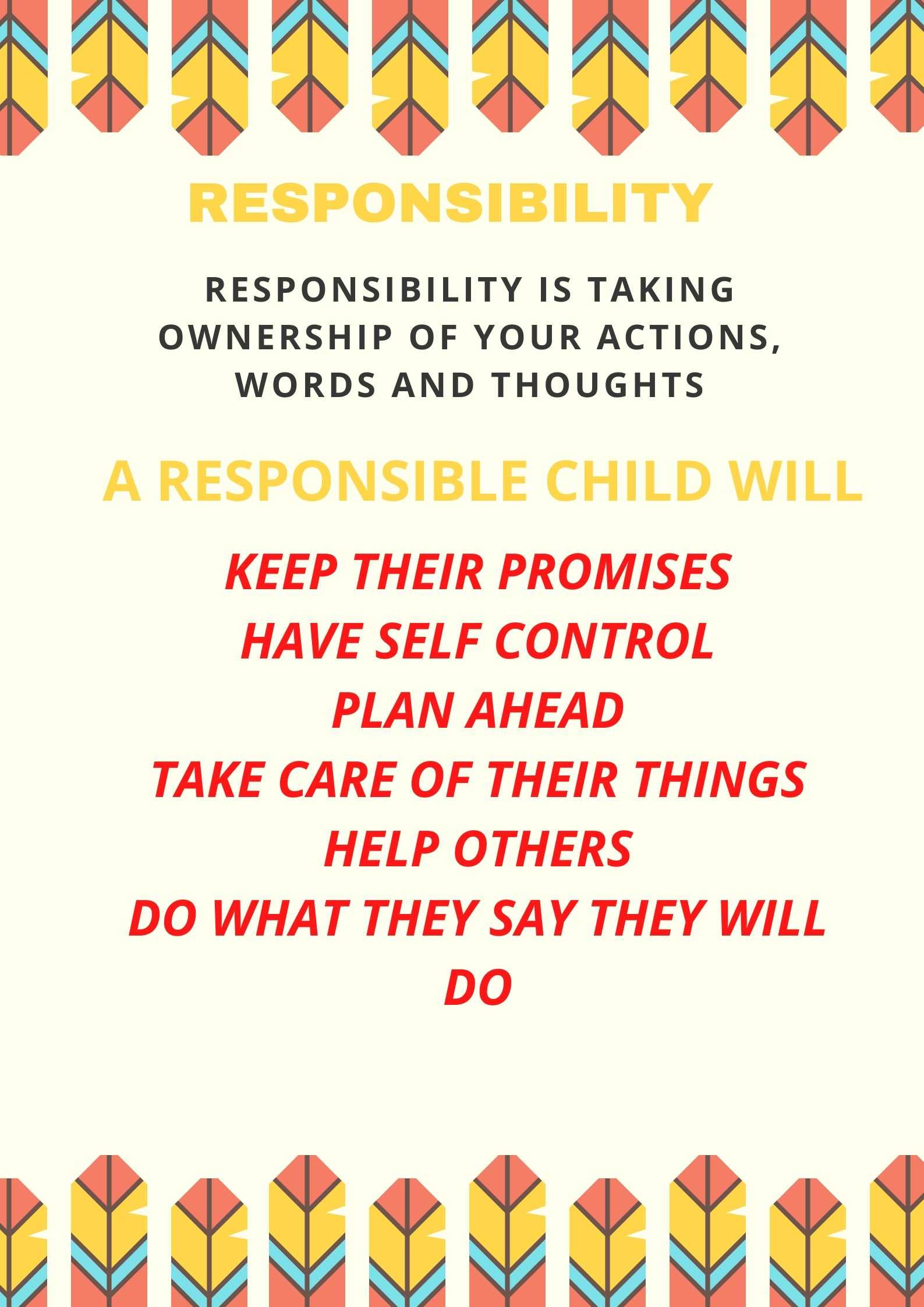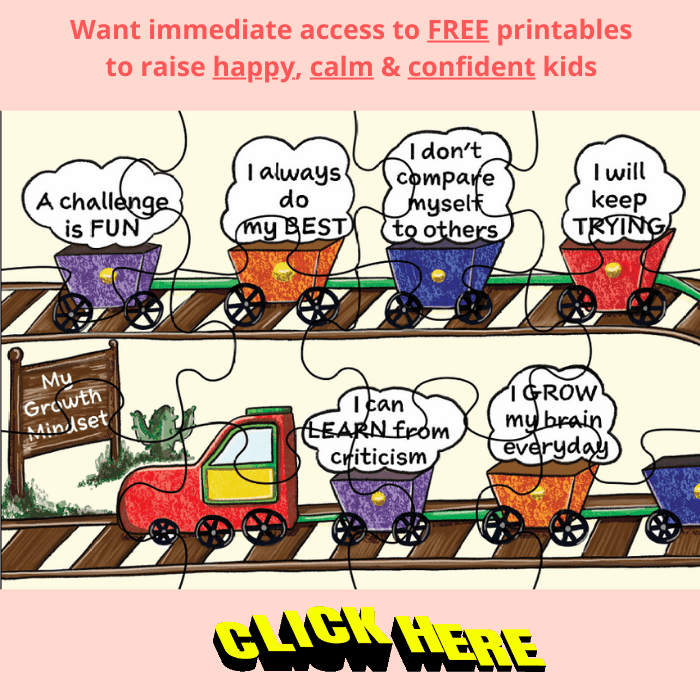Many parents want their children to be responsible and we want to live in a world where both adults and kids play their part and act as responsible citizens. Have you seen your friend’s son help the mum fold clothes or help her tidy up the house and wondered why your own kids aren’t that “helpful”? So why are some children being responsible and not others?
Karen Ruskin who authored the book “The 9 Key Techniques for Raising Respectful Children Who Make Responsible Choices” points out that kids that participate in chores from as young as 3 or 4 years are more likely to be self-sufficient and be responsible as compared to others who tend to “feel” entitled.
Responsible Child – Definition
We all know it is not easy to explain responsibility to children. There is acting responsibly, being responsible, taking on responsibility etc. A definition of responsibility is “you do the things you are expected to do and accept the consequences (results) of your actions”. If we break this down into small parts:
What is responsibility?
Responsibility is something expected of you. It can be an activity, task or chore. For example, the parents might expect the kids to make their bed, fold clothes or get ready in time for school. Your parents do not have to remind you to get these tasks done. In school, your teacher will expect you to listen to her carefully and complete the homework on time. Also in school, you are expected to be kind and not hurt other children.
What is consequence?
Consequence is the result or outcome of actions, and it can be either positive (good) or negative (bad). For example, if you complete your homework in time the teacher will be happy and may give you a sticker in class, but if you forget then the teacher won’t be happy and may have to longer in class which is a negative consequence.
Why Responsibility is Important?
As we mentioned earlier, being responsible can lead to positive outcomes which can result in reward, trust and being safe. People around you – parents, siblings, classmates, friends tend to like those that are responsible. Your child becomes strong and self-sufficient to take on greater challenges in life.
Examples of Responsibility
Getting ready in the morning in time for school – you wake up in the morning, brush your teeth and make sure you are ready for school in time.
Positive consequence – make parents happy and their lives easier, kids gain trust and get rewarded. Kids are always on time for school.
Negative consequence – make their parents unhappy, lost trust and be late to school.
When is Your Child Ready to Take On Responsibility
Like with anything, teaching responsibility to your little one requires proper timing and this entails knowing when they are ready to take on responsibility and what responsibilities are they ready for at various stages of their life.
So, at what age is a child ready to take on responsibilities and exercise a larger degree of independence? Well, the common consensus is around the age of four. While this isn’t new, further research has gone as to why four is the magical number.
According to the research of developmental psychologist, Lev Vyotsky, children begin how to utilize words for communication around this age.
And this isn’t just verbal communication with others but with themselves as well. In short, this means that by this age, they are thinking in terms of words, helping them recall things like rules and other concepts better.
Therefore, by the time your little one reaches the age of four, they are already mentally capable of absorbing what is needed to take on more responsibilities like chores and schoolwork.

Teaching Kids Responsibility
How to instil responsibility? Can you teach your child to be responsible? Yes, research does suggest it is possible.
There are certain things you can do to ensure you are raising a responsible child. Teaching your kids responsibility is something you can start from a young age.
You can also grab our very own Self-Esteem and Confidence Journal for kids and complete a few pages each day.

Actions of Responsibility By Age
Of course, raising a responsible child entails knowing what kind of responsibility to give at what age. Learning the difference between what responsibility to give to a child and what to give a teenager is important so that they learn and develop the skills they need at that certain age.
While age is really just a number as some children are capable enough to handle more complex tasks, here are just some of the tasks you can assign your child to help them better understand the concept of responsibility.
Preschoolers (Up to 5 Years)
At this age bracket, children are capable of more complex tasks compared to toddlers, focusing less on their own needs and contributing more to the household.
Things like choosing their own clothes, selecting their playmates, and having more autonomy when it comes to attending social events are some of the responsibilities you can teach them.
School-Aged Children (From 6 to 9 Years Old)
At this point, they can do all the aforementioned tasks as well as contribute more to the household like clearing their plates, permission on what to spend their allowance, how to spend their leisure time after they have finished their homework and other chores.
Preteens to Early Adolescence (From Ages 10 to 15)
This stage is often called the period of storm and stress as this is the time when your child is slowly transitioning from childhood to adolescence. At this point, their minds and bodies are going through a lot but they are more equipped to handle more serious responsibilities at this age.
At this point, you can give them more autonomy and allow them to exercise their independence. Activities like allowing them to walk with a friend to and from school or around the neighbourhood, ride public transportation by themselves, and budget their allowance will help teach them about responsibilities and prepare them for adulthood.
Adolescence (Ages 16 and above)
Learning how to teach responsibility to a teenager can be trickier because they’re not exactly known to be the best decision-makers. Adolescence can be a confusing time for many because, at this age, they’re no longer considered children but they’re not exactly adults as well.
However, giving them more responsibilities and teaching them how to be accountable is important because this will help prepare them for life as an adult. Some responsibilities you can give your teenager is giving more freedom to decide for themselves, although within reason, and giving them more authority on important decisions in the household.
Chores for young children
One of the great ways to teach responsibility is to let your kids take on chores. This is an excellent method I have used to get my kids to be independent.
Check out this article to learn various chores you can pass on based on age.
Check out this article to learn age-appropriate responsibilities for kids.
General Guidelines to Making It Work At Home
Raising a responsible child isn’t easy but it can be done as long as you avoid overindulging them. To make it work at home, here are the things you can do to avoid overindulgence and teach them the concept of responsibility.
- Define the limits of what they can and they can’t do.
- Learn how and when to say no.
- Hold them accountable for their actions.
- Establish and implement the rules.
- Set realistic expectations.
- Assign chores and ensure their completion.
- Define the consequences and follow through.
Final Thoughts
Knowing how to raise a responsible child is an important role we must play as parents. Teaching them the concept of responsibility and accountability is our duty as their parents and being responsible in school and at home will inevitably benefit them when they separate and find their own place in the world.
However, as parents, we also must take into account the different personalities and behaviours of our children so we can find the best approach on how to raise a responsible child. After all, no individual is the same so what can work for one child may not work for another.
Do you want to know how to stop being a helicopter mum? Click here to find out.
Do you want to learn how to teach your child self-regulation skills? Click here to find out.
References
- The Center for Parenting Education, Part I – The Big Picture: Teaching Responsibility to Your Children. Link here.
- Peter Gray Ph.D., The Age Four Transition to Responsible Childhood, 2018 December. Link here.
- Dr Laura Markham, Guide: age-appropriate responsibilities for toddlers to teens. Link here.
- Raisingchildren.net.au, Shifting responsibility to your child: teenage years, 2018 March. Link here.




2 Comments
Pingback: How to Help Your Child Make Friends at School: 10 Effective Ways - Mummy and Child
As a parent, you’re responsible for correcting and guiding your kids. But how you express your corrective guidance makes all the difference in how a child receives it. When you have to confront your child, avoid blaming, criticizing, or fault-finding, which undermine self-esteem and can lead to resentment. Instead, strive to nurture and encourage, even when disciplining your kids. Make sure they know that although you want and expect better next time, your love is there no matter what.